
The Bee Gees were a musical group formed in 1958 by brothers Barry, Robin, and Maurice Gibb. The trio were especially successful in popular music in the late 1960s and early 1970s, and later as prominent performers in the disco music era in the mid-to-late 1970s. The group sang recognisable three-part tight harmonies: Robin's clear vibrato lead vocals were a hallmark of their earlier hits, while Barry's R&B falsetto became their signature sound during the mid-to-late 1970s and 1980s. The group wrote all their own original material, as well as writing and producing several major hits for other artists, and are regarded as one of the most important and influential acts in pop-music history. They have been referred to in the media as The Disco Kings, Britain's First Family of Harmony, and The Kings of Dance Music.

Robin Hugh Gibb was a British singer and songwriter. He gained worldwide fame as a member of the Bee Gees with elder brother Barry and twin brother Maurice. Robin Gibb also had his own successful solo career. Their youngest brother Andy was also a singer.

Maurice Ernest Gibb was a British musician and songwriter. He achieved worldwide fame as a member of the pop group Bee Gees. Although his elder brother Barry Gibb and twin brother Robin Gibb were the group's main lead singers, most of their albums included at least one or two songs featuring Maurice's lead vocals, including "Lay It on Me", "Country Woman" and "On Time". The Bee Gees are one of the most successful pop-rock groups of all time.

Sir Barry Alan Crompton Gibb is a British musician, singer, songwriter and record producer. Along with his younger twin brothers, Robin and Maurice, he rose to worldwide fame as a member of the Bee Gees, one of the most commercially successful groups in the history of popular music. Gibb is well known for his wide vocal range including a far-reaching high-pitched falsetto. Gibb's career has spanned over 60 years.

Cucumber Castle is the seventh studio album by the Bee Gees, released in April 1970. It was produced by Barry Gibb, Maurice Gibb, and Robert Stigwood. It consists of songs from their television special of the same name, which was named after a song on their 1967 album Bee Gees' 1st. Cucumber Castle is the only Bee Gees album not to feature any recorded contributions from Robin Gibb, as he had left the group before the album was recorded.
Cheryl Lau Sang, known professionally as Samantha Sang, is an Australian singer. She had an earlier career as a teenage singer under the stage name Cheryl Gray, before adopting the stage name she is more widely known as in 1969. She first received nationwide recognition in Australia in 1967, after releasing the top ten single "You Made Me What I Am".
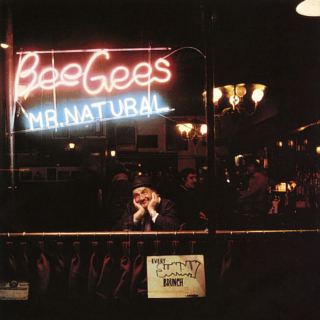
Mr. Natural is the twelfth studio album by the Bee Gees, released in 1974. It was the first Bee Gees release produced by Arif Mardin, who was partially responsible for launching the group's later major success with the follow-up album Main Course. The album's rhythm and blues, soul, funk, and hard rock sounds initiated the group's reinvention as a disco and blue-eyed soul act, which would solidify on subsequent albums. However, Barry Gibb has said that the album was "whiter" than Main Course. The cover photograph was taken at 334 West 4th Street, Greenwich Village, New York City by Frank Moscati, which is today known as The Corner Bistro tavern.
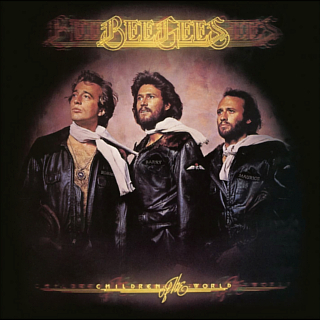
Children of the World is the fourteenth studio album by the Bee Gees, released in 1976 by RSO Records. The first single, "You Should Be Dancing", went to No. 1 in the US and Canada, and was a top ten hit in numerous other territories. The album was re-issued on CD by Reprise Records and Rhino Records in 2006. This was the first record featuring the Gibb-Galuten-Richardson production team which would have many successful collaborations in the following years. Many consider this a "prologue" to the band's foray into disco, which would culminate with the iconic Saturday Night Fever soundtrack the following year.

Horizontal is the fourth studio album by the Bee Gees, and their second album to receive an international release. The LP was released in early 1968, and included the international hit singles "Massachusetts" and "World". On 5 February 2007, Reprise Records reissued Horizontal with both stereo and mono mixes on one disc and a bonus disc of unreleased songs, non-album tracks, and alternate takes. The album was released in Polydor in many countries and on Atco only in the US and Canada. "And the Sun Will Shine" was released as a single only in France. The influences displayed on the album range from the Beatles to baroque pop.
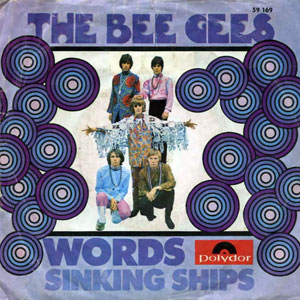
"Words" is a song by the Bee Gees, written by Barry, Robin, and Maurice Gibb. The song reached No. 1 in Germany, Canada, Switzerland, and the Netherlands.

Their Greatest Hits: The Record is the career retrospective greatest hits album by the Bee Gees, released on UTV Records and Polydor in November 2001 as HDCD. The album includes 40 tracks spanning over 35 years of music. Four of the songs were new recordings of classic Gibb compositions originally recorded by other artists, including "Emotion", "Heartbreaker", "Islands in the Stream", and "Immortality". It also features the Barry Gibb duet with Barbra Streisand, "Guilty", which originally appeared on Streisand's 1980 album of the same name. It is currently out of print and has been supplanted by another compilation, The Ultimate Bee Gees.
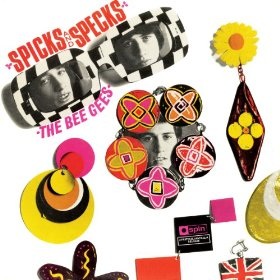
Spicks and Specks is the second studio album by the Bee Gees. It was released in November 1966, on Spin. Primarily written by Barry Gibb, the album includes the first Robin Gibb composition "I Don't Know Why I Bother With Myself" and a Maurice Gibb composition "Where Are You".

"Don't Forget to Remember" also called "Don't Forget to Remember Me" is a country ballad recorded by the Bee Gees, from the album Cucumber Castle. The song was written by Barry and Maurice Gibb. It was produced by the band with Robert Stigwood.
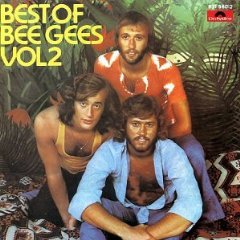
Best of Bee Gees Vol. 2 is a compilation album of hits by the Bee Gees released in 1973. The album, briefly revived on CD in the late 1980s, went out of print, but was reissued by Rhino in November 2008.

Here at Last... Bee Gees... Live is the first live album by the Bee Gees. It was recorded on December 20, 1976 at the LA Forum and was released in May 1977 by RSO Records. It reached No. 8 in the US, No. 8 in Australia, No. 1 in New Zealand, and No. 2 in Spain.
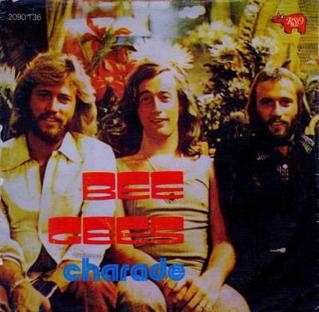
"Charade" is a ballad written by Barry Gibb and Robin Gibb released in 1974 by the Bee Gees. It was the third and final single released from the Mr. Natural album. Like the parent album, the single was not a hit and only managed to climb to #31 on Billboard's Adult Contemporary chart in late 1974. It did reach the Top 10 in Chile, peaking at #7.
"The Singer Sang His Song" is a song by the Bee Gees, written by Barry, Robin and released in early 1968 as a single along with Jumbo. In some countries the song was the B-side of Jumbo but in others they were promoted as a double A-side.

Robin's Reign is the first solo album by British singer Robin Gibb, a member of the Bee Gees with his brothers Barry and Maurice. Robin had left the group following a disagreement with his brother Barry over who should sing lead vocals. The album was not a commercial success, though it did spawn Gibb's solo hit, "Saved by the Bell". The other songs in the album were produced by Gibb, and the rest was produced with his manager, Vic Lewis. This album was reissued by RSO Records in 1978 and reissued in 1991 on Spectrum Records. The album had a limited CD release in Germany and was made available digitally on Amazon and Spotify in 2011 and iTunes the following year. Gibb would not release another solo album until 1983.
"Save Me, Save Me" is a song written by Barry Gibb and Albhy Galuten in 1977. It was recorded by the group Network from New York City. The flipside was "Not Love at All". This song is the first track credited to Gibb and Galuten. George Bitzer was hired to play synthesizers and keyboards and he later worked with Barry and Andy Gibb. It was recorded in Criteria Studios, Miami around April 1977, same session as Samantha Sang recorded her well-known hit "Emotion". The song was issued in Netherlands and the B-side was "Holly". John Vinci on vocals Richie Cerniglia as "Richie C" on guitar Mike Maniscalco as "Mike Coxton" on keyboardHowie Blume as "Howard Davidson" on bass Butch Poveromo as "Jean Paul Gaspar" on percussion, Mike Ricciardella — drums and George Bitzer on keyboard, synthesizer.
Gibb-Galuten-Richardson were a British-American record producing team, consisting of Bee Gees founding member and British singer-songwriter Barry Gibb, American musician and songwriter Albhy Galuten and American sound engineer Karl Richardson. They produced albums and singles for Andy Gibb, Samantha Sang, Frankie Valli, Teri DeSario, Barbra Streisand, Dionne Warwick, Kenny Rogers, Dolly Parton and Diana Ross.
















